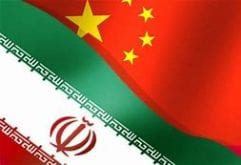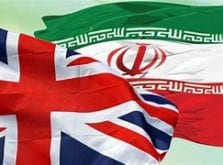Al-Arabia – While Russian-Israeli communications are still active for setting up a ground agreement in south of Syria, a new factor has emerged in relation to the Lebanese border with occupied Palestine. Lebanese Parliament Speaker Nabih Berri has revealed that the United States proposed to arrange negotiations between Lebanon and Israel over the border dispute between them.
The new highlight of these communications is not the principle of negotiating with Israel over the maritime borders that has caused conflict between the two countries for years and dominated the media headlines as Lebanon prepares to extract oil from the sea and specifically from blocks near the borders and which are disputed with Israel.
The new element is that Israel has suggested that to demarcate all land and sea borders, including those close to the Shebaa farms, which were undetermined after Israel’s withdrawal from Lebanon in 2000 and were kept under the occupation authority that demanded both Lebanon and Syria should agree on the ownership of the territory in order to withdraw from it. If these areas are Syrian, then they would come under UN Resolution 242 provisions, and if they are Lebanese, then they would fall under Resolution 425 which Israel has alleged it executed.
Lebanon and Syria haven’t been successful in finalizing this dispute over the Shebaa Farms. The status of this territory remains undetermined for many reasons that have to do with strategic interests related to Hezbollah’s arms. It is in favor of Syria and Iran to keep this dispute over the Shebaa Farms to justify the incomplete implementation of international resolutions related to confiscating illegal arms, in reference to Hezbollah’s arms, according to Resolutions 1559 and 1701.
Today, there are high level communications being carried out to resolve the problem of demarcating the borders between Lebanon and Israel starting from the Shebaa Farms. Western diplomatic sources in Beirut point out that Israel has sent messages to Lebanon through more than one party indicating that it is ready to draw the border and solve this point of dispute with Lebanon. These sources emphasize that Tel Aviv is working on two non-conflicting lines, one through Washington and the other through Moscow. The latter has invested into extracting gas from the sea, thus supporting an agreement between Israel and Lebanon to draw the maritime border. The second line is through Washington where a State Department team has been communicating with the two countries for months to set up a meeting to discuss an agreement to draw borders.
Russian pressure on Iran
Berri’s recent announcement about the land and sea borders included the condition that the negotiations are conducted under the auspices of the United Nations. What’s happening in southern Syria and the diplomatic communications regarding Lebanon’s southern border show that there are Israeli efforts to not separate reaching understandings under Russian supervision with Lebanon and Syria. Furthermore, Israel hopes to go back to the cease-fire agreement that it had with Syria after the 1973 war and which enabled it to calmly control Golan. In this sense, Russia aims to forge this agreement by having the Syrian army gain influence in areas next to the Golan, and without any Iranian presence. This marks an intersection point between Israel and Russia and responds to the path of rehabilitating the Syrian regime both regionally and internationally.
In this context, Iran appears to be in an unenviable position, and Hezbollah is aware that withdrawing from Syria will influence its control over the border issue with Israel. Hezbollah is thus aware that it will have to take decisive options in the near future. Hezbollah’s adopted strategy in shielding itself in Lebanon in conditional on maintaining trust with Russia. Israel, which has succeeded to a great extent in building confidence with Russia on Syrian affairs related to its security, seems more reassured today regarding the future of demarcating borders with Lebanon , especially since the Russian-American intersection in this issue pertaining to Israel’s borders and security is based on what Israel sees fit. This makes Lebanon in danger of being left out of any international protection if the Lebanese position seems indifferent in resolving its border issue with Israel and is unresponsive to the Israeli offer that seems strong as long as it appears willing to finalize the border conflict with Lebanon starting with the Shebaa Farms after determining its ownership between Lebanon and Syria.
Iran’s moment of truth
Lebanese and other Western diplomatic sources agree that the agreement being drafted regarding South Syria under Russia’s supervision will not be separate from the border demarcation agreement between Lebanon and Israel. Therefore the activity along Israel’s northern border is not separate from limiting Iranian influence in Syria first and in Lebanon next. Iran will not easily accept being put into a corner in these two countries, so we cannot really say that the Israeli aspirations regarding its security arrangements on its northern border are going at a steady pace, even if the general framework has been internationally set up under the auspices of the United States and Russia. Hezbollah Secretary General Hassan Nasrallah who is starting to realize the dangers of withdrawing his party and the Iranian militias from Syria after scarifying a lot to preserve the Syrian regime, announced in his last speech on the occasion of Jerusalem Day that only President Bashar al Assad, and no one else, can impose the withdrawal from Syria. This came after skirmishes happened between Hezbollah and Russian forces in Syrian areas in the region of Qalamun near the borders with Lebanon, and in the course of a Russian path that is becoming clearer day after day and that is calling for the withdrawal of Iranian militias from Syria.
Iran and Hezbollah have very few options left. Today, they can either both escape forward by opening a military confrontation with Israel – a confrontation that everyone knows it will not be limited to Syria but will also include Lebanon. Or they can make concessions that ensure the implementation of most Israeli conditions. This latter option also entails difficulties for Hezbollah and Iran if they both cede to the importance of respecting strategic commitments that are related to the formal recognition of Israel’s security on its northern border.
Parliament Speaker Nabih Berri, who in the past has been successful in conveying the Iranian point of view pertaining to Lebanon in his own way to those concerned at the international level, was keen to underline a few days ago and in unprecedented position that the withdrawal of Hezbollah and Iran from Syria would not take place before the liberation of Syria. Some observers said this reflects that Iran’s state of desperation due to international and regional pressures in Syria. On the other hand, Berri, who conveys an Iranian and hence a Hezbollah message, seeks not to link any agreement between southern Syria and southern Lebanon, even if this would put the border problem with Israel on hold along with the gas extraction project which he had hopes for to improve the Lebanese economy.
This article is also available in Arabic.
_____________
Ali Al-Amin is a journalist based in Lebanon and is the Editor of news site Janoubia.com.
 Shabtabnews In this dark night, I have lost my way – Arise from a corner, oh you the star of guidance.
Shabtabnews In this dark night, I have lost my way – Arise from a corner, oh you the star of guidance.


